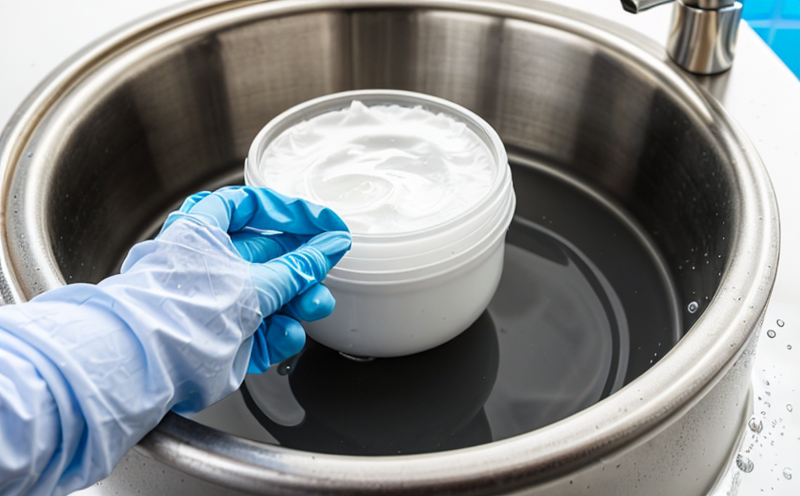ISO 2871 Anionic Surfactant Testing in Household Cleaners
The ISO 2871 standard is a critical tool for ensuring that household cleaners contain an appropriate level of anionic surfactants, which are crucial for achieving effective cleaning performance. This test evaluates the concentration and purity of anionic surfactants in these products to ensure they meet both performance expectations and regulatory compliance.
Anionic surfactants play a vital role in household cleaning solutions as they form micelles that help lift dirt and grime from surfaces. The effectiveness of these cleaning agents is directly tied to their concentration, which must be balanced for optimal results without causing damage or irritation. This balance is what ISO 2871 seeks to standardize.
The testing process involves several steps, including the preparation of the sample and the analysis using specific chemical reagents and equipment. The primary goal is to determine the total amount of anionic surfactants present in the cleaner, which is then compared against established standards to ensure compliance with industry norms.
Accurate and consistent testing is essential for maintaining product quality and safety. Inaccuracies can lead to ineffective cleaning products or those that pose health risks. By adhering strictly to ISO 2871, laboratories like ours ensure that every test conducted meets the highest standards of precision and reliability.
The application of this standard extends beyond mere compliance; it also serves as a benchmark for innovation in household cleaner formulations. Manufacturers can use the results from these tests to refine their products continuously, enhancing both efficacy and safety.
Understanding the scope and significance of ISO 2871 is crucial for quality managers, compliance officers, R&D engineers, and procurement teams involved in the development and production of household cleaning solutions. This standard provides a clear framework for ensuring that anionic surfactants are present at optimal levels, which not only enhances product performance but also contributes to consumer trust.
Benefits
Ensures compliance with international standards, thereby protecting your products from legal challenges and sanctions.
Improves the efficacy of household cleaners by ensuring that anionic surfactants are present at optimal levels.
Promotes consumer trust and satisfaction by delivering high-quality, safe cleaning solutions.
Facilitates innovation in product development by providing reliable data for refining cleaner formulations.
Why Choose This Test
Selecting ISO 2871 anionic surfactant testing is a strategic decision that offers numerous advantages. Firstly, it ensures your products meet the stringent requirements set by international standards, which can significantly reduce the risk of legal issues and market rejection. Secondly, this test enhances the performance of household cleaners, making them more effective at removing dirt and grime.
Consumer trust is paramount in any industry, and ISO 2871 testing plays a key role in building that trust. By adhering to these standards, you demonstrate your commitment to quality and safety, which can lead to increased customer satisfaction and loyalty. This, in turn, can enhance brand reputation and market position.
Furthermore, this test supports innovation by providing reliable data for product development. Manufacturers can use the insights gained from these tests to improve their formulations continuously, leading to better-performing products that meet evolving consumer needs.
Customer Impact and Satisfaction
The implementation of ISO 2871 anionic surfactant testing has a direct impact on customer satisfaction. By ensuring that household cleaners are effective at cleaning while remaining safe for use, this test enhances the overall user experience. Consumers appreciate products that deliver on their expectations regarding performance and safety.
Moreover, adherence to international standards like ISO 2871 can help manufacturers differentiate their products in a competitive market. When consumers see that your product has been tested according to these stringent criteria, they are more likely to choose it over alternatives. This can translate into increased sales and greater brand loyalty.
The data generated from this testing process is invaluable for quality managers and R&D teams. It provides actionable insights that can be used to improve product formulations continuously. By staying ahead of the curve in terms of product development, manufacturers can maintain a competitive edge in the market.





